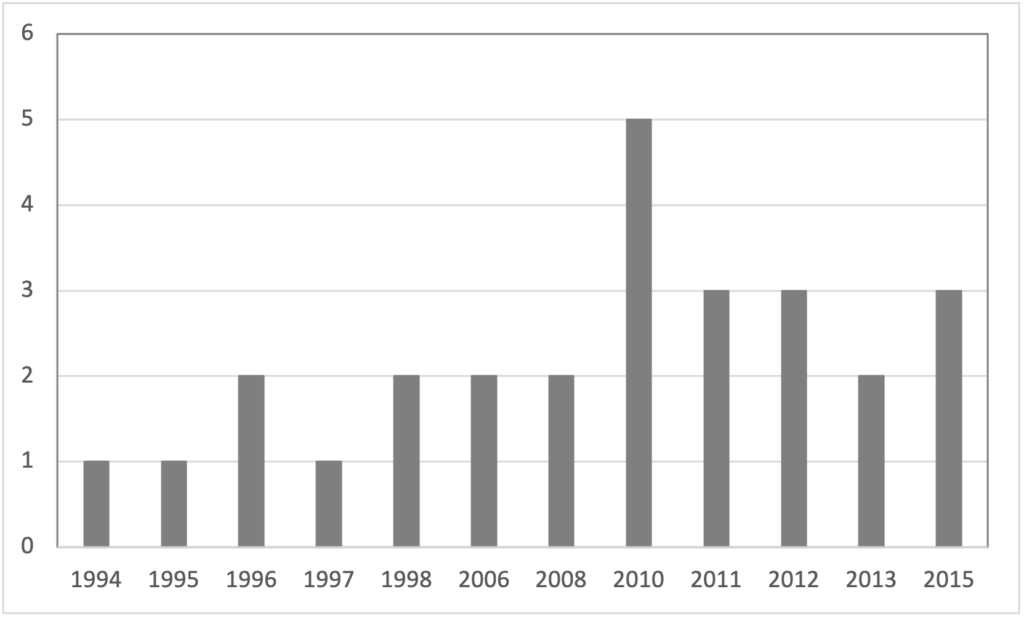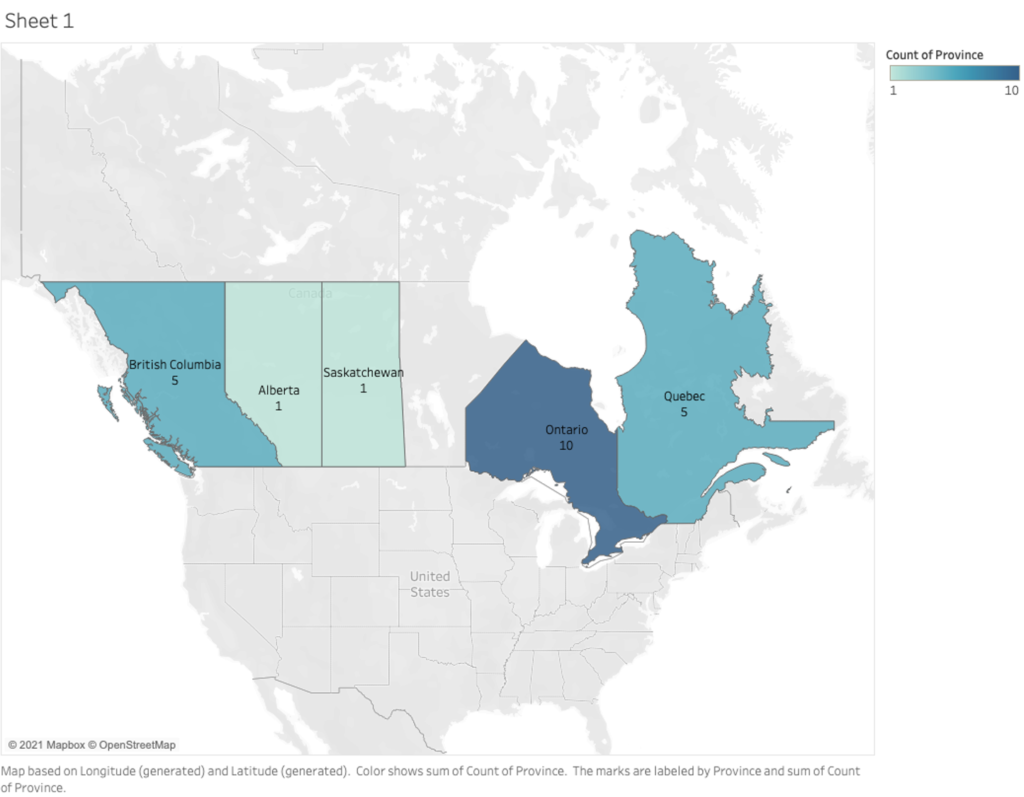SEL Implementation in Canadian Research: Scoping Review Findings Part 1
Today, I will be sharing some of the demographic results from my scoping review. From the 27 articles, we focused on when publications were made, provinces where studies were conducted, the grades that initiatives were conducted in, and the competency/skill focus that was part of the study.
Years of Publication
As you can see below, publications about SEL initiatives implemented in elementary schools in Canada have been consistent from 1994-2015. However, there is a peak in 2010, with 5 publications. There appears to be a lack of explicit social and emotional implementation research within Canada after 2015. This research gap may be due to more narrowly defined competencies and skills being researched and implemented within elementary settings.

Location of Studies
Social and emotional initiatives included in the scoping review were implemented predominantly in the provinces pictured below. One article mentioned being conducted in a Western province (not pictured) and the remainder did not identify the location of implementation. The schools were located in urban (n = 6), suburban (n = 5), semi-urban (n = 1), and rural (n = 5) locations. There were three schools within the public school system and two were classified as private. Two schools were declared as Anglophone and one was declared as francophone.

Grade
All elementary grades, except for grade 2, were the focus of at least one of the studies included in the scoping review. For a detailed breakdown, please see below.
Grade distribution of social and emotional learning initiatives in elementary schools in Canada (n = 27)
| Grade Level | Frequency | Percentage |
| Elementary | 2 | 7.41 |
| Grade 2 | 1 | 3.70 |
| Grade 3 | 1 | 3.70 |
| Grade 4 | 11 | 40.74 |
| Grade 5 | 10 | 37.04 |
| Grade 6 | 12 | 44.44 |
| Grade 7 | 9 | 33.33 |
| Grade 8 | 6 | 22.22 |
Competency focus
As you can see below, self-management interventions were the most common, followed by relationship building, self-awareness, social awareness, and problem-solving.
Distribution of Social and Emotional Competencies across included studies (n = 27)
| Competency | Frequency | Percentage |
| Self-Awareness | 12 | 44.44 |
| Self-Management | 11 | 40.74 |
| Social Awareness | 5 | 18.52 |
| Relationship Building | 8 | 29.63 |
| Responsible decision making | 2 | 7.4 |
Within each competency, there were many related constructs or skills that were listed. You can see them presented in the table below. Are there any that you disagree with the categorization of? Or any that surprised you?
Skills explored within each competency.
| Competency | Skill focus |
| Self-Awareness | Reflection, Self-esteem, Self-confidence, Self-concept, Self-awareness, Self-efficacy, Positive affect, Mindfulness, Emotion identification & explanation |
| Self-Management | Self-regulated learning, Coping, Personal growth, Self-assertion, Stress Control, Positive Perspectives, Relaxation, Goal setting, Motivation, Executive Function, Goal-directed actions, Planning Attention Success, Self-Regulation, Metacognition, Resilience |
| Social Awareness | Social awareness, Social Norms, Empathy, Caring, Perspective Taking, Emotional Sensitivity |
| Relationship Building | Cooperative learning, Relationship building, School adjustment, Connectedness/mentoring, School belonging, Conflict Resolution, Prosocial behaviour, Social Regard, Respect, Prosociality, Relatedness, Helping, Peer Mediation |
| Problem Solving | Critical thinking, reflection |
Coming Up Next
Next week, I will be sharing the synthesis of the definitions that were found across the articles for SEL and its related constructs.
I have just wrapped up my grading for the term so will be diving into more analyses of the interviews conducted with educators in Alberta and Ontario.
Any thoughts or feedback? Let me know in the comments below!
If you have any questions or would like more information, please feel free to email me at hwoods@uottawa.ca.
By participating in discussions through the comment section on this website, you consent to your participation in the study.
Please refrain from using any identifiable information (e.g., names, schools, locations). All posts will be screened prior to posting to ensure no identifiable information is being shared.
Please use a pseudonym for your name for all comments.



0 Comments